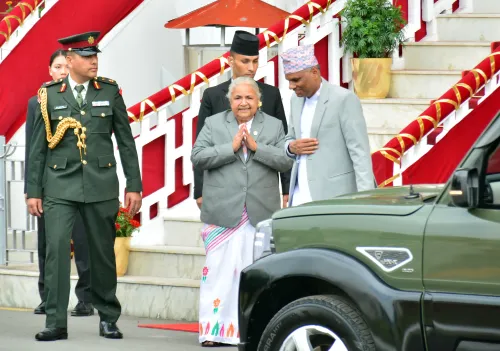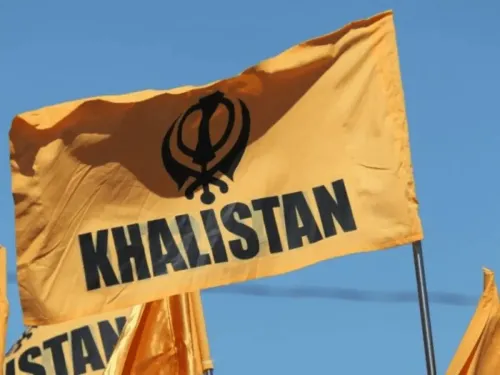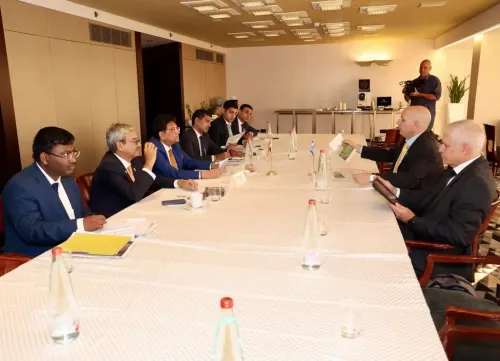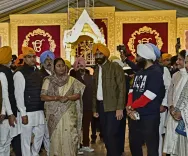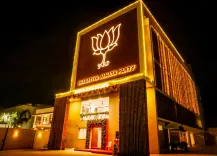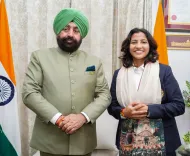What Steps is the South Korean Presidential Office Taking on US Tariffs?
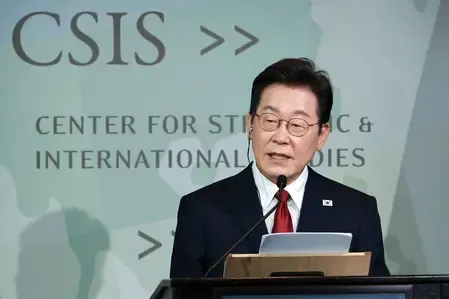
Synopsis
Key Takeaways
- Emergency meeting convened by South Korean officials to address US tariffs.
- USD 350 billion investment pledge under scrutiny amidst tariff negotiations.
- Officials emphasize prioritizing national interests in ongoing discussions.
- Need for careful management of economic commitments highlighted.
- Intense negotiations with the US require strategic approaches.
Seoul, Oct 5 (NationPress) The South Korean presidential office convened an emergency response meeting on Sunday regarding Washington's tariff policies, following a bilateral trade ministerial meeting held the day before.
Co-chaired by Kim Yong-beom, the presidential chief of staff for policy, and National Security Adviser Wi Sung-lac, the meeting included finance, foreign, and trade ministers, as reported by the presidential office.
This meeting occurred after Industry Minister Kim Jung-kwan and US Commerce Secretary Howard Lutnick had discussions in the United States on Saturday regarding tariff matters, according to Yonhap news agency.
“During the meeting, Industry Minister Kim Jung-kwan presented the outcomes of his conversation with Commerce Secretary Lutnick that took place late Saturday in the US, and the attendees deliberated on strategies to approach tariff negotiations based on these results,” the presidential office stated.
“The government will persist in engaging in follow-up negotiations with the United States on tariffs while prioritizing the nation's interests,” it added.
On September 29, Wi Sung-lac indicated that South Korea cannot fulfill its USD 350 billion investment pledge to the United States in cash as part of a framework agreement that reduced tariffs, following remarks from US President Donald Trump suggesting the investment would be made “upfront.”
Wi pointed out that the discussions between Seoul and Washington are focused on finalizing the investment package, which aims to lower US tariffs from 25 percent to 15 percent.
“From our perspective, it is impossible to pay USD 350 billion in cash,” Wi told reporters.
When questioned about Trump’s comments on the upfront payment, Wi expressed uncertainty over whether the US president fully understood Seoul's position, suggesting Trump reiterated the US government's “basic stance.”
Officials in Seoul have stated that the USD 350 billion investment pledge requires certain safeguards, such as a currency swap, and is aimed at financing projects rather than a cash payment.
Wi also mentioned he was unaware of the intentions behind US Commerce Secretary Howard Lutnick's comments that discussions with Korean officials included the possibility of increasing the investment amount beyond the original pledge.
As negotiations continue, Wi adopted a cautious approach concerning the recent criticisms from the ruling Democratic Party regarding US demands.
“Given the intense nature of negotiations with the US, I believe we should utilize all available strategies, but we must not overextend ourselves,” Wi stated.

